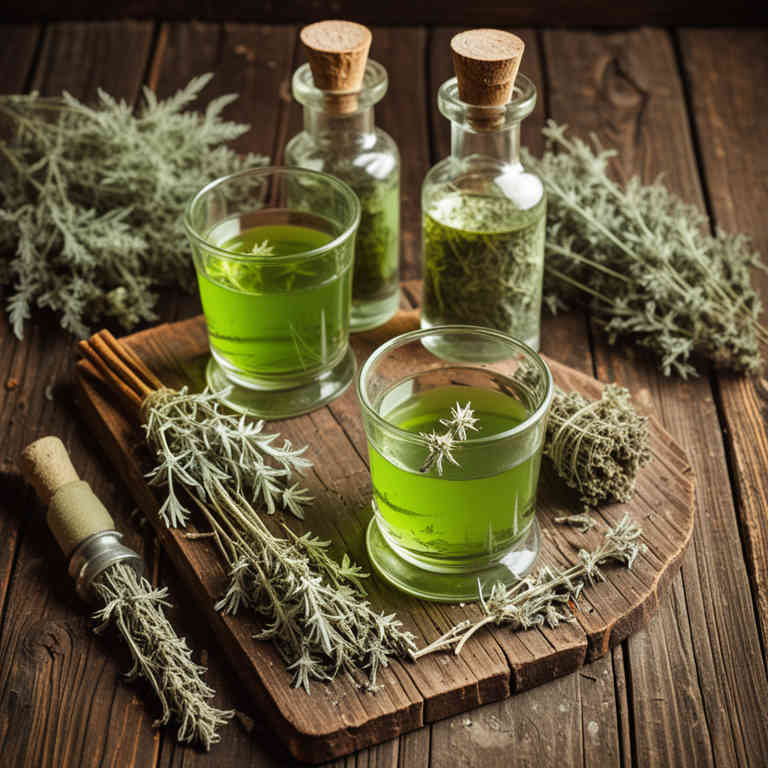Artemisia absinthium decoction for medicinal use

Artemisia absinthium decoction is a preparation made by boiling the dried leaves and flowers of the wormwood plant.
It has been traditionally used in herbalism for its digestive and detoxifying properties. The decoction is often employed to support liver function and aid in the treatment of digestive disorders. It may also be used to relieve symptoms of malaria and as a vermifuge to expel intestinal worms.
However, due to its potent effects, it should be used with caution and under the guidance of a qualified herbalist.
Uses
Artemisia absinthium decoction has been used to treat various ailments across different cultures and time periods.
Historically, it was employed in ancient Egypt and Greece for its purported antiseptic and digestive properties. In traditional medicine, it was used to alleviate symptoms of malaria and as a vermifuge to expel intestinal worms. Modern research suggests it may have antimicrobial and antiparasitic effects, supporting its traditional uses.
Today, it is sometimes used in herbal remedies for digestive support and as a natural insect repellent.
Benefits
Artemisia absinthium decoction has health benefits such as aiding digestion, reducing inflammation, and supporting liver function.
It is traditionally used to treat digestive issues like indigestion and bloating due to its carminative properties. The decoction may also help in detoxifying the body and promoting metabolic processes. Some studies suggest it could have antimicrobial properties that aid in fighting infections.
However, it should be used with caution and under professional guidance due to its potent nature.
Constituents
Artemisia absinthium decoction active constituents include compounds such as thujone, flavonoids, terpenoids, and essential oils.
These components contribute to the decoction's traditional use in promoting digestive health and acting as a mild sedative. Thujone, in particular, is known for its potential antiparasitic and antifungal properties. The flavonoids and terpenoids may support liver function and have antioxidant effects.
However, due to the presence of thujone, it should be used with caution and under professional guidance to avoid toxicity.
Preparation
To make Artemisia absinthium decoction, start by gathering fresh or dried Artemisia absinthium leaves and stems.
Place the herbs in a pot and add about 2 cups of water. Bring the mixture to a boil, then reduce the heat and let it simmer for 15 to 20 minutes. Strain the liquid through a fine mesh strainer or cheesecloth to remove the plant material.
Allow the decoction to cool slightly before using it as a tea or for other herbal applications.
Side Effects
Artemisia absinthium decoction may lead to liver toxicity, gastrointestinal distress, and neurological effects due to its high concentration of compounds like thujone.
Prolonged or excessive use can result in severe liver damage, including cirrhosis or failure. It may also cause nausea, vomiting, and headaches in some individuals. The preparation is contraindicated during pregnancy and for individuals with pre-existing liver conditions.
Due to its potency, it should only be used under the guidance of a qualified healthcare professional.